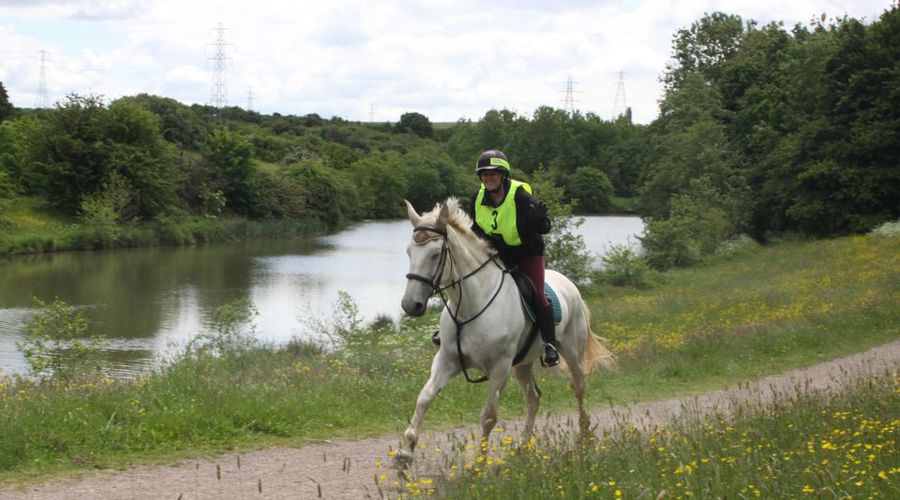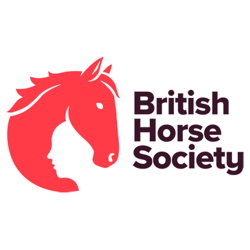Working together we can make sure that routes used by horses in the past are accurately recorded and protected so they can continue to be enjoyed by future generations of equestrians.
To help you to help us save these routes, we’ve gathered together all the resources you’ll need to get started, beginning with our 2026 toolkit (PDF). Our toolkit will take you through a step-by-step process of everything you need to do to legally record and protect your route.
Recording and researching routes
To get a head start on researching your routes, we recommend you pick up a copy of Rights of Way, Restoring the Record by Sarah Bucks and Phil Wadey, also known as the ‘green book’. This informative read includes helpful hints and time-saving tips on carrying out research.
Researchers may also find it useful to refer to the Open Spaces Society and BHS information factsheet on the parish council's role in preparing the first definitive map here.
We’ve also put together in-depth guides on Researching a Route(PDF) and Recording a Right of Way (PDF), both of which you can print at home to help you as you set about protecting and recording your local routes. Alternatively, you can contact the Access team at access@bhs.org.uk or 02476 840515 to be sent a hard copy.
Project 2026 Map
To enable volunteers to coordinate work, avoid duplication, share evidence and support one another, we have developed a mapping and research site at bhsaccess.org.uk/2026/. Using this, anyone can plot paths of interest and gather and share evidence online on a county-by -county basis.
Evidence
Part of your application for recording your routes will include documentary evidence to back up your claim that your route is an historic one that carries public rights. In addition to the evidence listed in our toolkit, there are other documents that can provide evidence to support your case:
- Check with your local authority who may hold some evidence (old highway records for instance)
- Some documents are only available at national records centres such as The National Archives at Kew or the British Library
- A great tip is to use the National Archives online catalogue, which includes collections at most country record offices – put the nearest village in the search box and see what comes up
- Check out our extensive list of online sources of historical evidence
Your BHS Regional Access and Bridleways Officer (RABO) or County Access and Bridleways Officer (CABO) may be able to help by assessing your evidence to see if it’s sufficient and then guide you in the preparation and submission of your application.
Find landownership details
Within the video we reference some useful links.
- To find the Land Registry INSPIRE reference numbers you require using the online tool shown, click here.
- To find and purchase title information from HM Land Registry, click here.
 play-circle
play-circle
Project 2026 - Finding Landownership information using the INSPIRE ID
Get in touch
If you have completed the research but don’t want to send in the application in your own name, contact your local BHS Access Field Officer and they may be able to help.
Our friendly Access Team are always on hand to offer advice and guidance and can be contacted by email: access@bhs.org.uk or by phone: 02476 840515
Funding
Project 2026 – Sport England funding to end in March 2026
Despite the Government announcement on Boxing Day last year, that they intend to repeal the 2031 cut-off date, there has still been no further news on when that might actually happen. The BHS are continuing to lobby and campaign for this and until it is repealed, we have to work on the basis that unrecorded rights of way are still at risk of being lost.
We are extremely grateful to Sport England and British Equestrian for helping to fund Project 2026 (P2026) over the last seven years. Their financial support has enabled us to offer assistance to volunteers to help meet the costs of the research and application process and thus far has resulted in well over 4000 DMMO applications being registered with local authorities across England. Even though there are widespread delays of many years in processing such applications, already in excess of 80 routes have been added to the Definitive Map, safeguarding them for posterity for use by equestrians and other vulnerable road users.
Although Sport England’s funding will come to an end on 31 March 2026, P2026 will continue, albeit in a revised form. Regardless of whether the cut-off is repealed or not, securing an application to add an unrecorded right of way to the definitive map, remains the best way of protecting it from neglect, obstruction or development.
Up until that date the current financial arrangements will continue; up to £50 for a registered application that scores at least 7* using the Restoring the Record methodology or £75, if you have served the required landowner notices.
Please bear in mind the following deadlines for any applications for which funding is requested:
- By 31 March 2026 - all DMMO applications that meet P2026 requirements must be submitted to the relevant local authority.
- By 10 April 2026 – the P2026 DMMO Record of Application form must be received by BHS HQ, leaving the Local Authority’ Register Reference and Certification Date fields blank if necessary.
- 30 June 2026 is the final deadline for the receipt of Local Authority register references and certification dates omitted from any earlier DMMO Record of Application forms, and for any other required application paperwork.
As more and more previously submitted applications are now progressing through Local Authorities to the determination and order making stages, applicants are having to devote a growing amount of time to dealing with appeals and public inquiries. Consequently, our focus and resources must shift towards ensuring that support and training is in place to help applicants with these new challenges.
Central project funding towards research and application expenses will no longer be available after 31 March 2026. However, we will obviously continue to offer help and advice with new applications and many valuable sources of historical / documentary evidence can now be freely obtained online, often through BHS’s Dobbin 2026 website. Financial assistance towards other application expenses may still be available for BHS volunteers on a local or regional level but will have to be agreed in advance on a case-by-case basis.
We also continue to work closely with other organisations such as the Ramblers and the Open Spaces Society to support all those seeking to record lost rights of way including by developing the Restoring the Record training programme, ideally making much of the content accessible on demand via online modules.
Please do let us know if you have any questions arising from these changes to P2026 – just email us at P2026@bhs.org.uk.


